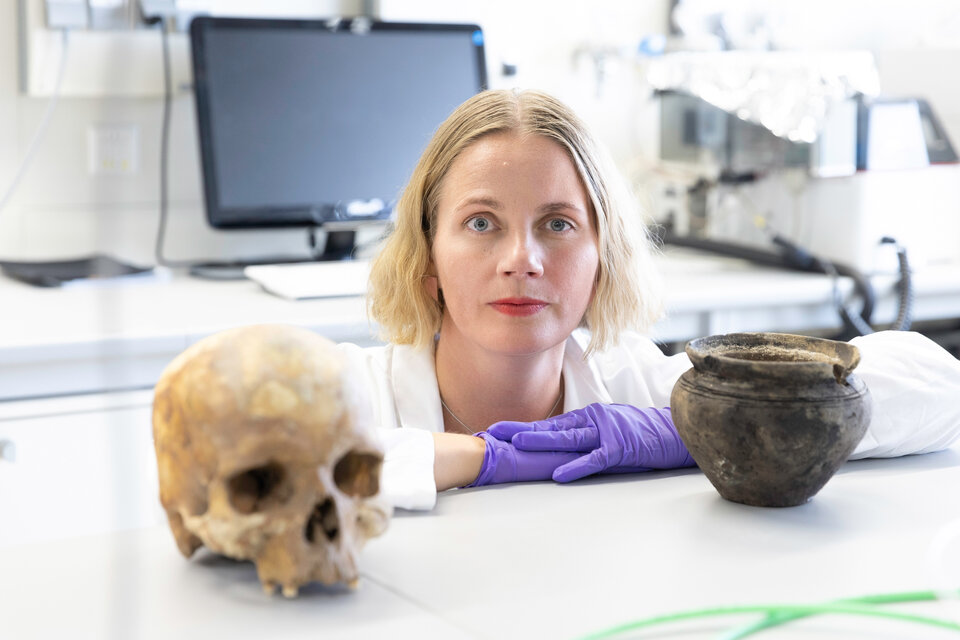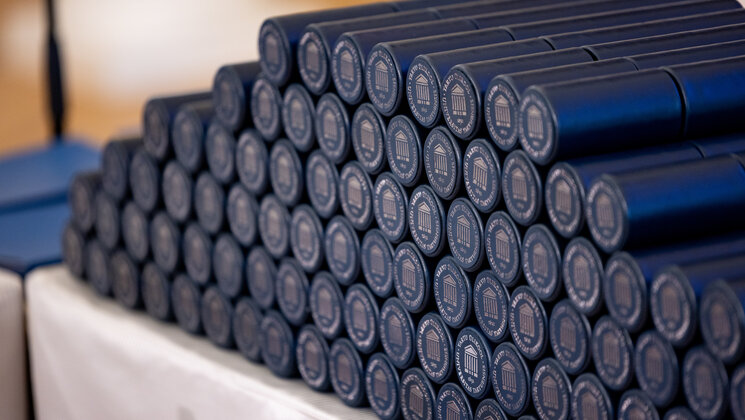-
Faculty of Arts and HumanitiesDean's Office, Faculty of Arts and HumanitiesJakobi 2, r 116-121 51005 Tartu linn, Tartu linn, Tartumaa EST0Institute of History and ArchaeologyJakobi 2 51005 Tartu linn, Tartu linn, Tartumaa EST0Institute of Estonian and General LinguisticsJakobi 2, IV korrus 51005 Tartu linn, Tartu linn, Tartumaa EST0Institute of Philosophy and SemioticsJakobi 2, III korrus, ruumid 302-337 51005 Tartu linn, Tartu linn, Tartumaa EST0Institute of Cultural ResearchÜlikooli 16 51003 Tartu linn, Tartu linn, Tartumaa EST0Institute of Foreign Languages and CulturesLossi 3 51003 Tartu linn, Tartu linn, Tartumaa EST0School of Theology and Religious StudiesÜlikooli 18 50090 Tartu linn, Tartu linn, Tartumaa EST0Viljandi Culture AcademyPosti 1 71004 Viljandi linn, Viljandimaa EST0Professors emeriti, Faculty of Arts and Humanities0Associate Professors emeriti, Faculty of Arts and Humanities0Faculty of Social SciencesDean's Office, Faculty of Social SciencesLossi 36 51003 Tartu linn, Tartu linn, Tartumaa EST0Institute of EducationJakobi 5 51005 Tartu linn, Tartu linn, Tartumaa EST0Johan Skytte Institute of Political StudiesLossi 36, ruum 301 51003 Tartu linn, Tartu linn, Tartumaa EST0School of Economics and Business AdministrationNarva mnt 18 51009 Tartu linn, Tartu linn, Tartumaa EST0Institute of PsychologyNäituse 2 50409 Tartu linn, Tartu linn, Tartumaa EST0School of LawNäituse 20 - 324 50409 Tartu linn, Tartu linn, Tartumaa EST0Institute of Social StudiesLossi 36 51003 Tartu linn, Tartu linn, Tartumaa EST0Narva CollegeRaekoja plats 2 20307 Narva linn, Ida-Virumaa EST0Pärnu CollegeRingi 35 80012 Pärnu linn, Pärnu linn, Pärnumaa EST0Professors emeriti, Faculty of Social Sciences0Associate Professors emeriti, Faculty of Social Sciences0Faculty of MedicineDean's Office, Faculty of MedicineRavila 19 50411 Tartu linn, Tartu linn, Tartumaa ESTInstitute of Biomedicine and Translational MedicineBiomeedikum, Ravila 19 50411 Tartu linn, Tartu linn, Tartumaa ESTInstitute of PharmacyNooruse 1 50411 Tartu linn, Tartu linn, Tartumaa ESTInstitute of DentistryL. Puusepa 1a 50406 Tartu linn, Tartu linn, Tartumaa ESTInstitute of Clinical MedicineL. Puusepa 8 50406 Tartu linn, Tartu linn, Tartumaa ESTInstitute of Family Medicine and Public HealthRavila 19 50411 Tartu linn, Tartu linn, Tartumaa ESTInstitute of Sport Sciences and PhysiotherapyUjula 4 51008 Tartu linn, Tartu linn, Tartumaa ESTProfessors emeriti, Faculty of Medicine0Associate Professors emeriti, Faculty of Medicine0Faculty of Science and TechnologyDean's Office, Faculty of Science and TechnologyVanemuise 46 - 208 51003 Tartu linn, Tartu linn, Tartumaa ESTInstitute of Computer ScienceNarva mnt 18 51009 Tartu linn, Tartu linn, Tartumaa ESTInstitute of GenomicsRiia 23b/2 51010 Tartu linn, Tartu linn, Tartumaa ESTEstonian Marine Institute0Institute of PhysicsInstitute of ChemistryRavila 14a 50411 Tartu linn, Tartu linn, Tartumaa EST0Institute of Mathematics and StatisticsNarva mnt 18 51009 Tartu linn, Tartu linn, Tartumaa EST0Institute of Molecular and Cell BiologyRiia 23, 23b - 134 51010 Tartu linn, Tartu linn, Tartumaa ESTTartu ObservatoryObservatooriumi 1 61602 Tõravere alevik, Nõo vald, Tartumaa EST0Institute of TechnologyNooruse 1 50411 Tartu linn, Tartu linn, Tartumaa ESTInstitute of Ecology and Earth SciencesJ. Liivi tn 2 50409 Tartu linn, Tartu linn, Tartumaa ESTProfessors emeriti, Faculty of Science and Technology0Associate Professors emeriti, Faculty of Science and Technology0Institute of BioengineeringArea of Academic SecretaryHuman Resources OfficeUppsala 6, Lossi 36 51003 Tartu linn, Tartu linn, Tartumaa EST0Area of Head of FinanceFinance Office0Area of Director of AdministrationInformation Technology Office0Administrative OfficeÜlikooli 17 (III korrus) 51005 Tartu linn, Tartu linn, Tartumaa EST0Estates Office0Marketing and Communication OfficeÜlikooli 18, ruumid 102, 104, 209, 210 50090 Tartu linn, Tartu linn, Tartumaa EST0Area of Vice Rector for DevelopmentCentre for Entrepreneurship and InnovationNarva mnt 18 51009 Tartu linn, Tartu linn, Tartumaa EST0University of Tartu Natural History Museum and Botanical GardenVanemuise 46 51003 Tartu linn, Tartu linn, Tartumaa EST0International Cooperation and Protocol Office0University of Tartu MuseumLossi 25 51003 Tartu linn, Tartu linn, Tartumaa EST0Area of RectorRector's Strategy OfficeInternal Audit OfficeArea of Vice Rector for Academic AffairsOffice of Academic AffairsUniversity of Tartu Youth AcademyUppsala 10 51003 Tartu linn, Tartu linn, Tartumaa EST0Student Union OfficeÜlikooli 18b 51005 Tartu linn, Tartu linn, Tartumaa EST0Centre for Learning and TeachingArea of Vice Rector for ResearchUniversity of Tartu LibraryW. Struve 1 50091 Tartu linn, Tartu linn, Tartumaa EST0Grant Office
You are what you eat – ERC grant supports research into past people’s identities based on their dietary practices

Ester Oras, Associate Professor in Analytical Chemistry and Archaeology at the University of Tartu, has received a Starting Grant from the European Research Council (ERC) to study the identities of our distant ancestors based on their diet. Over the next five years, Oras and her team plan to conduct an in-depth biomolecular analysis of at least 150 ancient burials to uncover new layers in the lives of people from a thousand years ago and broaden the range of research methods available to archaeologists.
Messages from the distant past are carried to the present day by different archaeological finds and ancient burial sites, whilst the latter reveal the moment in history when a community buried a member according to how they saw the deceased in society at the time. Often, however, the life of the deceased, the aspects of their group identity and how it changed over their lifetime remain hidden. However, detailed biomolecular analysis of ancient skeletal remains and pottery food residues can shed light on these multiple and dynamic identity categories.
“The study of what people ate is crucial in archaeology because it allows, thanks to modern high-resolution analysis, to reconstruct the intricate details of the human diet from infancy to death at the biomolecular level. The human skeleton and bone tissues develop throughout the lifespan. Thus, an analysis of samples from different bone elements can show us how the person spent their childhood, whether they grew up where they were buried, whether they consumed, for example, typical women’s food or the food of a wealthy family, and how their identity evolved over their lifetime,” Oras explained.

Until now, identity categories have mostly been studied in isolation – comparing and opposing e.g. men or women, peasants or noblemen. Food, however, can be a common denominator for all these social groups and the molecular information stored in the skeletal remains makes it possible to analyse several social categories at the same time. For the analysis, the researchers use cemetery materials dating from 1000–1400: skeletons, teeth, dental plaque, but also pottery buried as grave goods. Altogether, they plan to analyse at least 150 finds, mainly from burial sites in different parts of Estonia.
The project will have a significant impact on archaeological research. Differently from earlier research that has focused primarily on single molecules, such as lipids or proteins, this project will for the first time combine all known methods, including the analysis of different biomolecules and high-resolution methods. These make it possible to obtain more nuanced dietary data, e.g. not only to determine whether a person ever ate fish but also whether the fish was cod or herring. The skeletons will be also examined for DNA to identify possible family links. Machine learning will be used to combine analytical methods and identify relations. According to Oras, such combining of methods is entirely new and allows a qualitative leap forward for archaeological research, both in terms of the methods developed and the novel concepts of social archaeology and identity studies.
The grants from the European Research Council support innovative frontier research in various disciplines. The Starting Grant is awarded to early-stage researchers with outstanding ideas. Ester Oras, the founder and leader of the interdisciplinary research group Archemy at the University of Tartu, combines archaeology with cutting edge analytical methods to study ancient and medieval nutrition and health issues. The Archemy team will also implement the upcoming five-year ERC project “Food identities: biomolecular archaeology reveals multiple and dynamic social identities”. The project budget will be 2.4 million euros.
Read more similar news

05.03.2025





